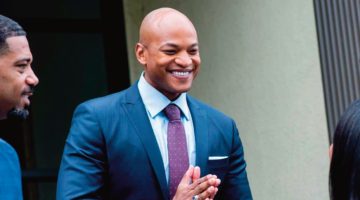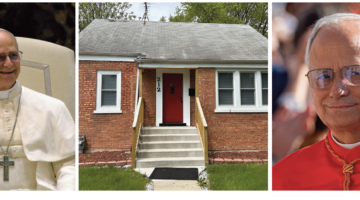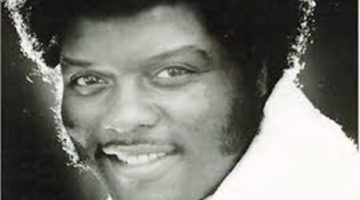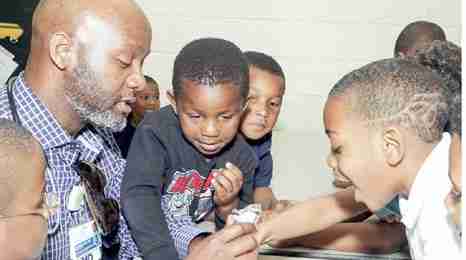GOOD MEDICINE: Dr. Chris Miller works with young boys at Wiley Elementary School in Greensboro, North Carolina inspiring them to become medical doctors.
PHOTO COURTESY OF GREENSBORO MEDICAL SOCIETY
By K. BARRETT BILALI
GREENSBORO, N.C. – A historic black organization is making an effort to increase the number of Black male doctors entering the profession.
The Greensboro Medical Society, which was founded in 1927, has initiated a program to visit schools and encourage young students to consider medicine as a career.
The society has established a program called Men’s Doctor Day. The purpose is to go into schools and reach out to young black males to encourage, inspire and expose young boys to the medical profession.
Earlier this month, sixteen African American male doctors visited Wiley Elementary School and inspired 182 black boys from pre-K to the fifth grade.
“The particular school we selected was socio-economically the poorest school in the county, said Keith Funderburk, who coordinated the event for the society. “The majority of these kids had never seen a black doctor.”
Wiley Elementary School’s demographics were 85 percent African American, ten percent Latino and five percent white or others.
“We would not deny anyone the opportunity to participate, but we wanted to have an impact on minority students,” said Funderburk. “We are launching a strategy to increase the pipeline of African American male students to pursue a career in medicine.”
For participating in the day’s activities, each of the students received a stethoscope and a tie.
Medical doctors are awarded a white coat after many years of study, a long residency and becoming a certified physician or medical specialist. So the society asked the teachers from each grade level to select one student to receive a white coat based on the student’s academics, attendance, and good conduct in school.
Seven boys received white coats for each of the seven grades attending the program. “We wanted this to be something they would remember,” said Funderburk.
The crisis of the decreased number of black men becoming doctors is real. African American males are simply not pursuing medicine as a career, said Funderburk. There were 545 black men enrolled in an accredited medical school in 1978. Thirty six years later only, 515 black men had entered medical school in 2014.
“That is a staggering statistic, said Dr. Alvin Powell, a nephrologist based in Greensboro and one of the doctors to visit the elementary school. “At least, it is staggering to me.”
Powell was one of the 545 black men to enter med school in 1978 after completing his bachelor’s degree at Columbia University.
“I saw one African American physician growing up my entire childhood life, said Powell. “The second one I met in college, third was in med school.”
As for working with such young boys, Powell said the ages four to eleven-years old is “the correct age to expose these kids to hope and opportunity.”
Powell asked some of the boys what they wanted to be when they grow up. Some said a basketball or baseball player.
“I said, ‘What if you don’t become a big man,’ They had a dumbfounded look,” said Powell.
A more recent report cites the financial expense of medical school, bias/stereotypes of black men, and imagery/career attractiveness as some of the key factors for the decreasing number of black males becoming doctors.
The report also highlights the impact of these young students attending school that are underperforming academically. The Wiley Elementary School is ranked academically as the 1,275th school out of 1,414 in North Carolina.
“The higher probability of Black males attending underperforming schools which lack pre-medical resources and experiencing teachers that lack cultural awareness influences the number of students in ‘the pipeline,’” said the 2017 report entitled, An American Crisis: The Lack of Black Men in Medicine.
“Unconscious bias,” said Powell about the behaviors of some teachers. “They may be directing students away from medical schools”
Powell, who grew up in Boston, recounted a story of his fifth-grade teacher’s reaction to a book report he handed in.
“She said, quote, ‘This sounds like your book report was copied from the jacket of the book.’” Along with those biting words, he got a C+ for a grade.
Powell ran home and told his mom. She made him go to the library and find the book and bring it to the teacher to prove that he did not copy anything.
“The book was Mr. Popper’s Penguin,” said Powell. “She [the teacher] made an assumption and allegation, graded me and gave me a poor grade. As a young boy, I realized that I was being treated differently because of my race.”
Powell and Funderburk both agree that the challenge of increasing the number of black young men entering into med school is a difficult one but not insurmountable.
“It’s a daunting task,” admitted Powell. “But if we don’t get involved, whose going to get involved?”
The medical society provided a similar program for young Black female students in December 2017.












No Comment